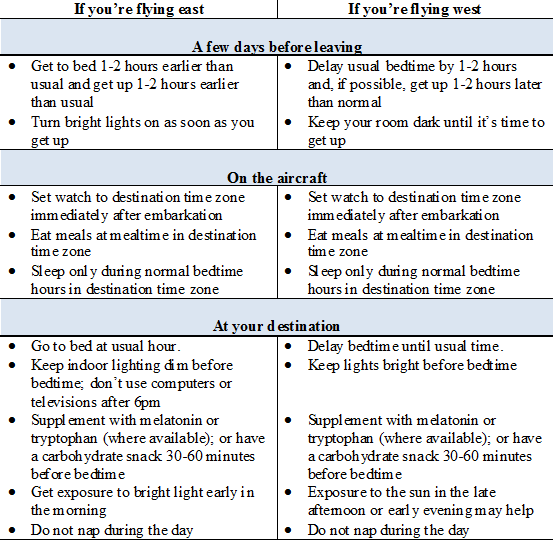
More evidence that low-calorie sweeteners are bad for your health
Studies show that artificial sweeteners can raise the risk of hypertension, metabolic syndrome, type 2 diabetes and heart disease, including stroke.

Holidays. They can be the best of times and the worst of times.
If you are follow the principles of holistic living and use alternative remedies as a first line for healthcare then packing for a summer holiday – really a holiday at any time – can be fraught with anxiety.
Everybody likes to travel light, but what if your destination doesn’t have a homoeopathic pharmacy close by, what if the only pain reliever you can find is paracetamol and the only mosquito repellent you can find contains the sort of pesticides that no human should be exposed to.
It is always tempting to leave medical kits at home in favour of fitting in a few more clothes. Yet there is nothing worse than feeling ill in a foreign country and not having access to your usual alternative treatments.
Travel can bring its own unique set of health problems such as jet lag and upset tummies. Because of this it’s nice to know that by packing your own custom made first aid kit you can continue to treat yourself and your family holistically should the need arise.
The basics
Planning your holiday first aid kit requires the same kind of planning and ingenuity and most of all flexibility that planning any other part of your trip takes. It requires that you know your needs and the needs of those you travel with as well as the likely risks of your destination.
Apart from the usual bandages, cotton swabs and tweezers a simple holistic travel kit consider including:
If you are going to take herbal remedies on holiday be sensible. Don’t pack loose herbs in bags in your suitcase. In some countries this can be more trouble than it is worth if you get stopped at customs. Instead for the short duration of your holiday use clearly labelled commercial capsules and tinctures as well as good quality tea bags such as chamomile and peppermint (useful for stress and upset tummies respectively).
These ingredients will treat a wide range of conditions simply and easily
You may also want to consider packing some of the products mentioned below to deal with specific problems.
Headache
Dehydration – from the heat or as a result of being stuck in an air-conditioned cabin for hour and also of drinking alcohol and coffee – can bring on headaches during travel. So can abrupt changes of temperature and the stress of adjusting t new surroundings and routines.
Make sure you stay hydrated, and if you are carrying reusable water bottles with you check they don’t contain, or in the case of stainless steel bottles aren’t lined with, BHA and contain no phthalates.
A little dab of peppermint essential oil mix on your temples or sprinkled onto a tissue and inhaled can provide quick headache relief. Other herbs that can help clear your head include rosemary lavender, bergamot and clary sage.
Travellers’ tummy
Stomach complaints when they arise can account for a day or two lost from what may be only a week-long break. Foods to watch out for include those which require washing and handling such as salads, foods that have not been cooked thoroughly such as raw fish and meat, and buffet food which can be left exposed to flies and other insects. In countries where the drinking water is suspect, only drink from sealed bottles and make sure that any drinks purchased from a bar or restaurant do not contain ice.
If you should fall ill, you can take any number of commercial formulas to stave off dehydration. However it may be just as simple to make your own if you are carrying or can get hold of the right ingredients.
To counteract the effects of traveller’s diarrhoea make up a tea by mixing half a tablespoon of both fennel seeds and dried peppermint leaves with half a litre of boiled water.
Add a quarter of a teaspoon of table salt, an eighth of a teaspoon of both sodium bicarbonate and potassium chloride (“lo salt”), and one tablespoon of glucose. Drink as much of it as possible and also supplement with water-soluble B-complex and C vitamins.
Travel sickness
Travel generally involves some sort of motion, in cars, planes and boats. For anyone suffering from motion sickness this spells misery. Some but not all people find ginger (in any form from sweets to capsules) a useful treatment. Likewise wrist bands that press on an acupoint on the underside of your wrist may work for some. The homeopathic remedies Nux vomica, Tabacum and Cocculus may also be effective. However travel sickness can be notoriously difficult to treat; you may have to experiment to find what works best for you.
Sun protection
While most of us have been brought up with the idea that suncreams are protective (and this idea is being forcefully driven home by government campaigns around the world) some scientists now believe that the use of sunscreens may actually encourage the development of skin cancer either because they encourage us to say our too long or because they contain toxic ingredients.
Suncreams should be part of a sensible ‘portfolio’ of sun smart behaviour which includes not going out in the midday sun, wearing protective clothing (Most summer clothes provide an SPF of more than 10), hats and sunglasses.
When choosing a suncream make sure it is one with mineral (as opposed to chemical sunscreens). These days micronised zinc oxide is considered the safest form of sunscreen. A good quality organic or natural brand will also include plenty of plant extracts and antioxidants to enhance the effectiveness of the sunscreen whilst keeping the skin moisturised.
Don’t forget also to protect your lips which are very vulnerable to sun damage.
Keeping the bugs at bay
Essential oils, particularly citronella and eucalyptus (used alone or mixed with other oils such as geranium and palmarosa) can be used to stop pesky mosquitoes biting.
Citronella (Cymbopogon nardus) is derived from lemongrass and tests show that they are effective, but their effect lasts for a shorter time than commercial pesticides. Reapplying frequently can make up for citronella’s short acting effects.
Other useful and proven insect repellents include eucalyptus (Eucalyptus citriodora, Eucalyptus globulus) and neem. The latter combined with simple coconut oil has been proven effective at controlling mosquito bites.
A simple way to use essential oils as insect repellents is to fill a small spray bottle with water and add up to 30 drops of your chosen essential oil. Spray as necessary to keep the bugs at bay.
In addition, there is some evidence that mosquitoes are attracted to dark clothing; so wearing lighter colours may be protective.
If you do get bit a simple dab of lavender or tea tree essential oil can provides relief from itching.
Avoiding jet lag
No matter how well prepared and healthy you are the stress of travelling over several time zones will tell on your body clock to some degree. The most important factor in jet lag is how many time zones you cross, and travelling east seems to cause more problems for most people than travelling west. If you have a rigid routine, it’s likely that you might suffer more from jet lag than someone who adapts easily to change – babies seem barely susceptible to jet lag.
To avoid jet lag consider these suggestions:

In addition, homoeopathic Arnica 6C can be taken as required for general symptoms of jet lag; Gelsemium 6C can be taken as required if you are feeling heavy or shaky.

Please subscribe me to your newsletter mailing list. I have read the
privacy statement